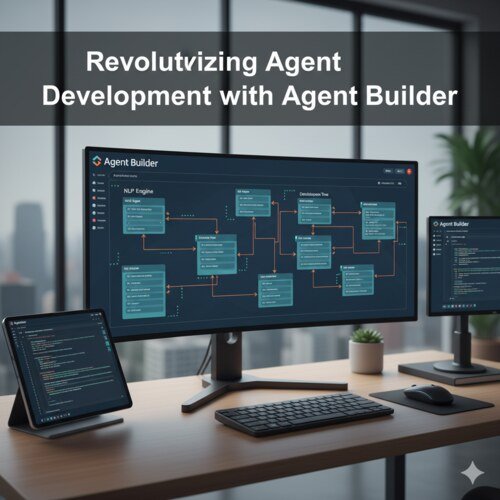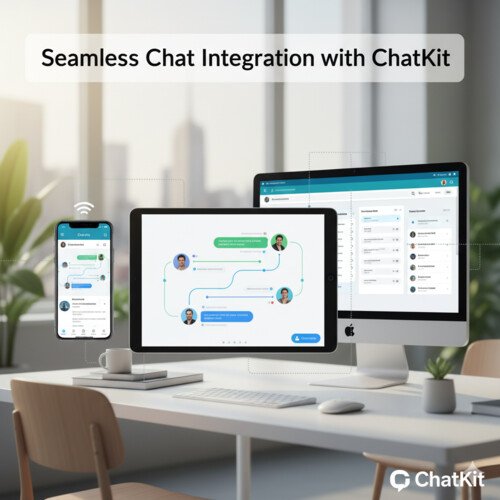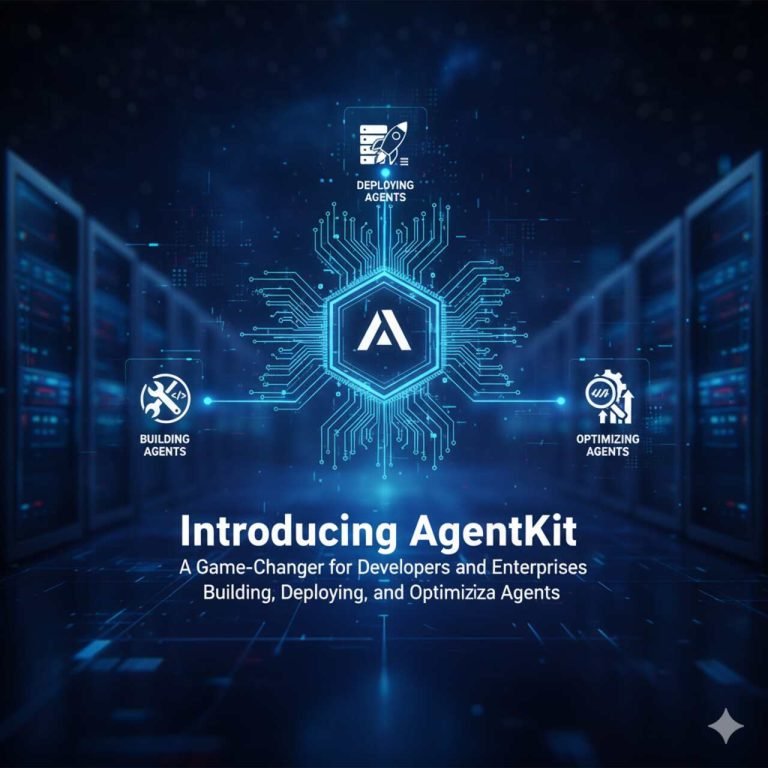Today marks the launch of AgentKit, a comprehensive suite of tools designed to streamline the process of building, deploying, and optimizing AI agents. For developers and enterprises, creating AI agents has traditionally been a fragmented and complex endeavor, involving a mix of manual work, custom code, and orchestration. With AgentKit, the process becomes much more efficient, enabling faster iteration and deployment.
Revolutionizing Agent Development with Agent Builder

One of the standout features of AgentKit is the Agent Builder, a visual canvas that allows developers to create and version multi-agent workflows with ease. Instead of spending weeks on backend integration and frontend work, developers can now design agent workflows visually using drag-and-drop nodes. This feature brings clarity to complex workflows, offering tools for tool integration, custom configurations, and inline evaluation. With Agent Builder, teams can iterate quickly and build agents faster—what once took months can now be completed in just a few hours.
Real-World Impact
Companies like Ramp and LY Corporation have already experienced impressive results. Ramp, for instance, reduced its development cycle by 70%, creating a buyer agent in just a couple of hours instead of months of custom code and orchestration. LY Corporation, a leading tech firm in Japan, developed a work assistant agent in under two hours, revolutionizing their internal processes.
Simplifying Integrations with the Connector Registry
Alongside the Agent Builder, AgentKit introduces the Connector Registry, which serves as a central hub for managing data and tool connections across various OpenAI products. The registry includes pre-built connectors for popular tools like Dropbox, Google Drive, SharePoint, and Microsoft Teams. With this centralized management system, enterprises can streamline how data flows between tools, ensuring smoother operations and faster deployment.
Enhanced Safety with Guardrails
To address concerns around security and performance, AgentKit introduces Guardrails, a safety layer that ensures agents behave as expected. These open-source tools help prevent unintended or malicious actions, flagging sensitive information (like personally identifiable information) and protecting against vulnerabilities.
Seamless Chat Integration with ChatKit

For developers looking to integrate chat-based experiences into their products, ChatKit offers an intuitive toolkit to deploy customizable agentic chat interfaces. This tool is designed to simplify the process of embedding chat-based agents into websites or apps, ensuring that developers can create seamless, branded experiences for users. Companies like Canva have already used ChatKit to save weeks of development time, transforming user engagement with conversational agents for support and documentation.
Measuring Agent Performance with Evals
To ensure that agents perform reliably at scale, AgentKit also includes Evals—a powerful toolset for performance evaluation. Developers can now test and measure their agents’ effectiveness through new capabilities, including datasets, trace grading, and automated prompt optimization. These tools help developers fine-tune agent behavior, ensuring that agents remain accurate and responsive. Companies using Evals have already seen significant improvements in agent accuracy, with some cutting development time in half.
Fine-Tuning Performance with Reinforcement Learning
For enterprises pushing the boundaries of agent performance, AgentKit offers Reinforcement Fine-Tuning (RFT), which allows developers to tailor models to specific needs. Whether it’s customizing tool calls or creating personalized evaluation criteria, RFT helps developers refine agent decision-making for even greater efficiency and reliability.
Availability and Future Plans
Starting today, ChatKit and the new Evals capabilities are available to all developers, while Agent Builder is currently in beta. The Connector Registry is being gradually rolled out to specific API and ChatGPT Enterprise customers. As part of its long-term roadmap, OpenAI plans to add a standalone Workflows API and agent deployment options soon.
With AgentKit, OpenAI is transforming how developers and enterprises create and optimize intelligent agents. Whether it’s automating workflows, deploying agents, or measuring performance, this powerful suite of tools promises to accelerate innovation in the AI-driven world.

